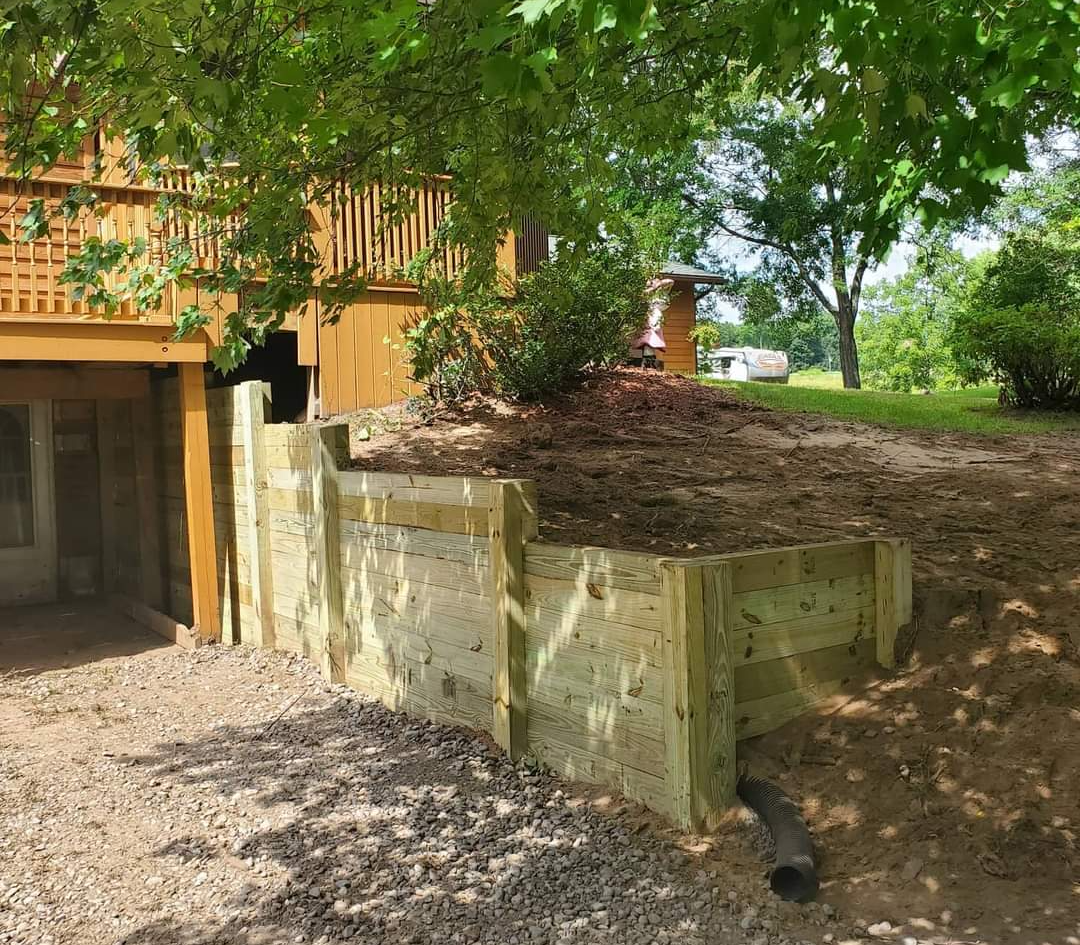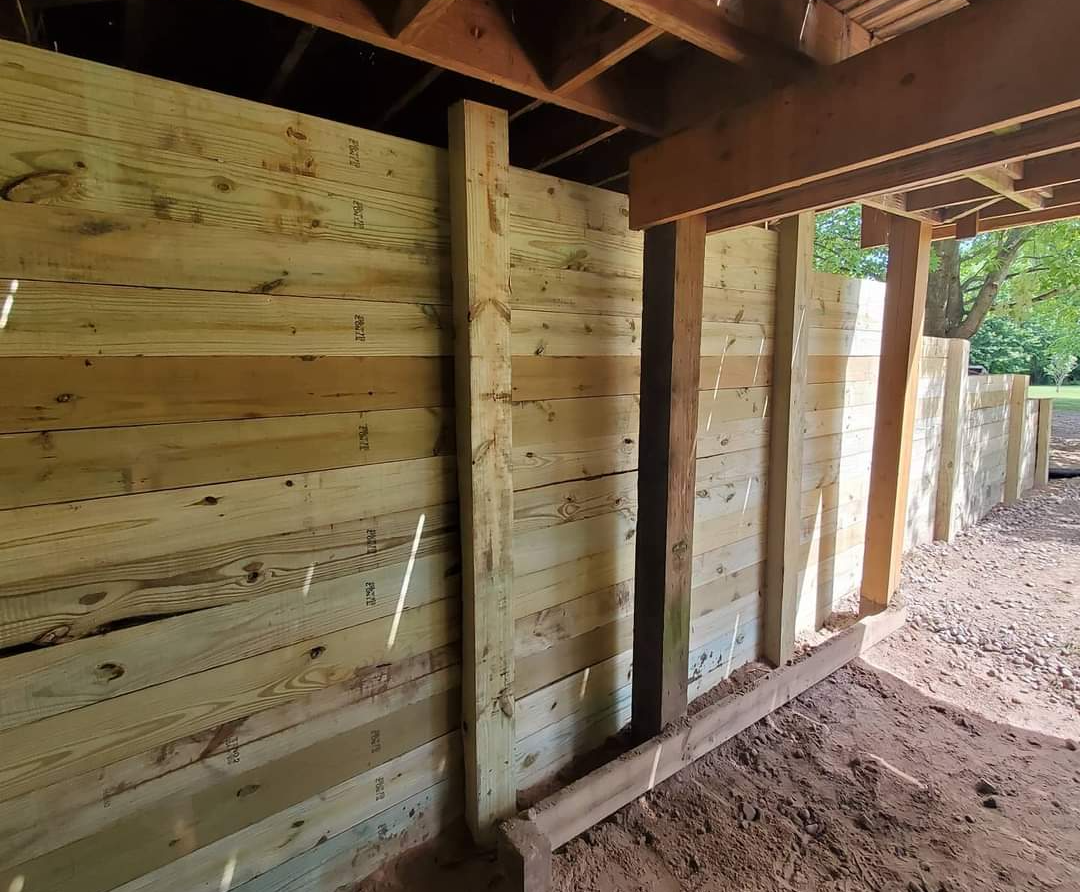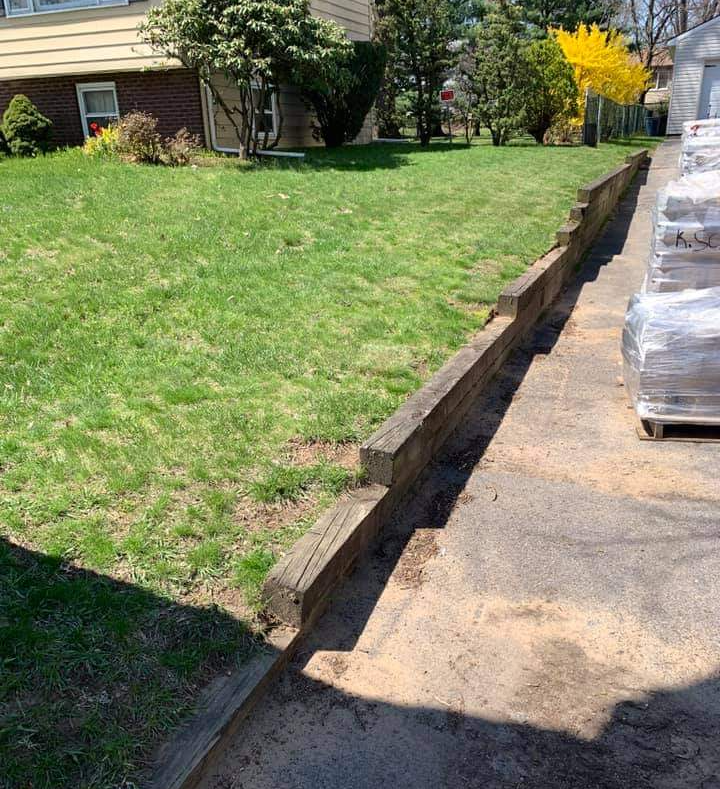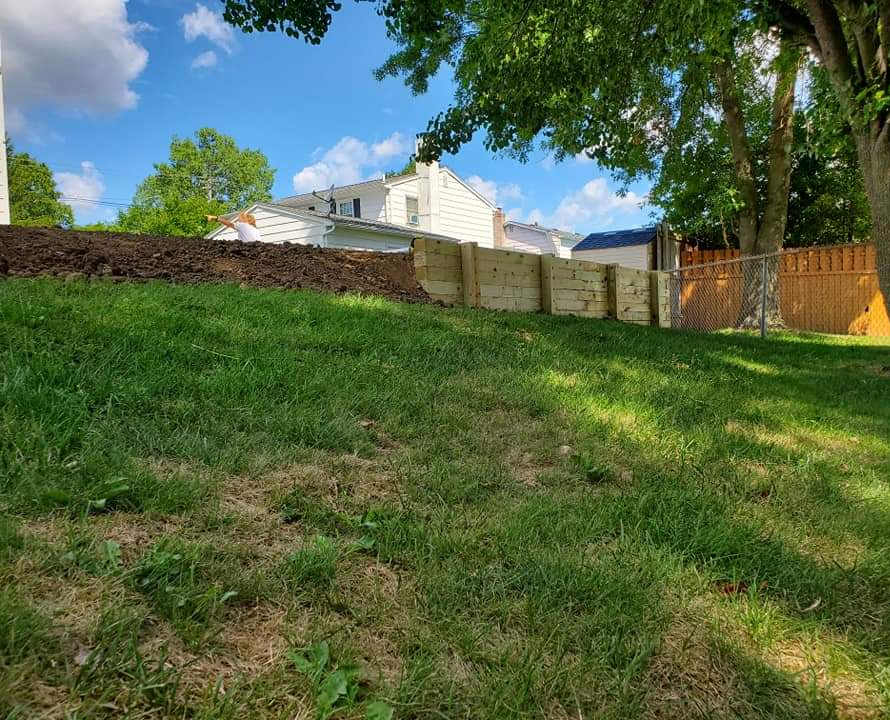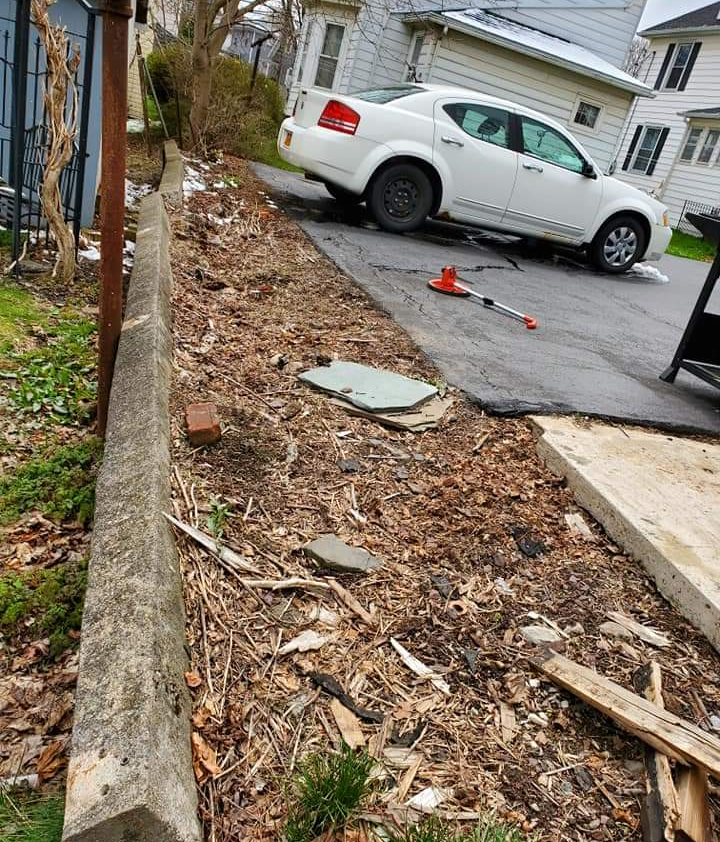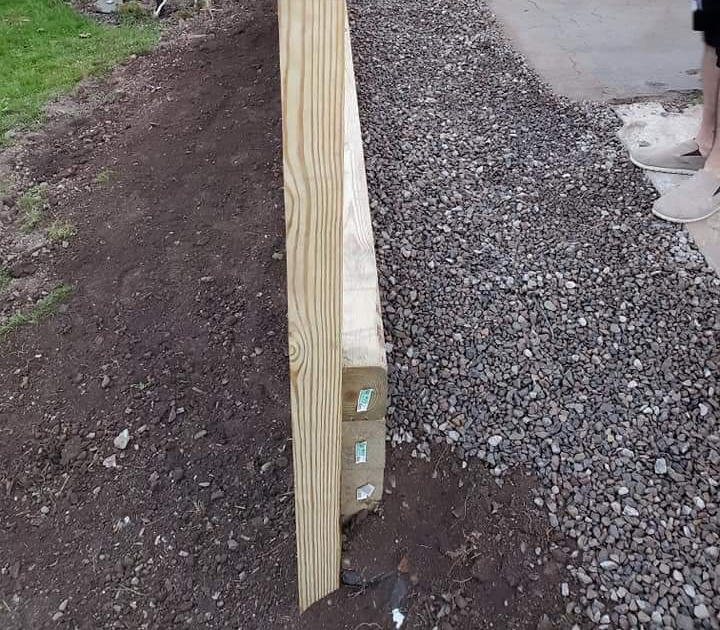We've been providing excellent service as
Retaining Walls Contractors
...for over 20 years!
What is a Retaining Wall?
A retaining wall is a type of barrier that holds back water, soil, and other materials. It is usually made of concrete, stone, or wood, and it can be used for both commercial and residential applications.
Retaining walls are a specific type of wall that supports and protects the landscape with an extended surface. And is often constructed in areas where soil slopes away from or across an existing building, forming a hill or scarp. This can be seen as part of the natural landscape and is often considered an architectural feature rather than a traditional building component.
It is either built with or without the use of mortar, and typically stands about one meter high. They're used for homes, businesses, cemeteries, parks, and more. A retaining wall may be made out of stone or concrete blocks, as well as metal frames with wire mesh stretched over them, and can be used in residential or commercial properties as a method to contain soil, stone or other ground materials.
Types of Retaining Walls For Your Area
There are several different types of retaining walls, each with its own advantages and disadvantages.
Gravity walls rely on their weight for stability, while cantilevered walls use horizontal forces to resist the pressure of the soil.
Counterfort walls are similar to cantilevered walls, but they have additional vertical supports that help to distribute the load.
Piled walls are supported by a network of piles that are driven into the ground, and anchored walls are secured with cables or rods that are anchored into the bedrock.
Each type of wall has its own strengths and weaknesses, and the most suitable option will depend on the specific conditions of the site. As qualified retaining walls contractors, we will be able to assess the situation and recommend the best solution.
Need a retaining wall build? Reach out to us for a free quote today!
Advantages of Using Retaining Walls
We are always looking for new and innovative ways to provide better solutions for our clients. One technique that has proven to be particularly effective in our excavation & construction duties is the use of retaining walls. These structures are designed to support and hold back the pressure exerted on an incline, providing stability and even drainage across a sloped area.
There are many advantages to using retaining walls in your landscaping projects, including their ability to reduce soil loss, help with water control, and create more aesthetically pleasing spaces.
They can also be installed relatively quickly and are relatively low-maintenance compared to other options, making them an excellent choice for any land owner looking to improve their property. Whether you're working on a commercial or residential site, retaining walls are certainly worth considering as a potential solution to your landscaping needs.
Things To Consider When Hiring a Retaining Wall Contractor
When hiring a retaining wall contractor, go beyond reviews and site visits. Engage in design discussions to explore options that blend functionality with aesthetics, ensuring the project aligns with your vision. Clarify warranty details to solidify confidence in the contractor's commitment.
Taking these steps enhances the overall experience, offering practicality and a personalized touch. Additionally, seek recommendations from friends and check the contractor's online presence for a comprehensive understanding.
Ensure they are licensed, insured, and communicate effectively. Request to see ongoing or completed projects for firsthand assessment of craftsmanship. These thorough evaluations lead to an informed decision for a successful retaining wall project.
Benefits of Hiring D R Excavation as Your Retaining Wall Contractors
Equipped with the necessary tools and expertise, we construct enduring and visually pleasing retaining walls.
Collaborate with us for a customized design that meets your needs, and we're available to address any construction-related inquiries.
Choosing D R Excavation ensures a correctly built, long-lasting structure, free from unsightly piles that can cause issues during rain or flooding.
As seasoned professionals, we employ top-notch materials and methods, ensuring a timely and trouble-free project completion. Opt for us for reliable and hassle-free retaining wall construction.
Importance of Landscape Design in Retaining Walls
Lawn & Back yard Landscaping Projects
As retaining wall contractors, we often get asked about the importance of landscape design for retaining walls. While the answer may vary depending on the specific project, in general, we believe that landscape design is an essential component of any retaining wall project. There are several reasons for this. First, retaining walls are often used to create a more aesthetically pleasing outdoor space. By carefully designing the retaining wall and landscaping around it, you can create a space that is both functional and beautiful.
Second, landscape design can help to ensure that your retaining wall is structurally sound. By incorporating features such as drainage systems and erosion control measures into the design, you can help to prolong the life of your retaining wall.
In short, while landscape design may not be the most important factor in every retaining wall project, it is definitely something that should be given serious consideration. As a retaining wall contractor with years of experience, we can attest to the fact that incorporating landscape design into your project can make a big difference in the overall results.
Black Dirt Delivery
"Black dirt" is a term used by retaining wall contractors to refer to the delivery of soil to a jobsite. The soil is typically black in color and is used to fill in around retaining walls or other structures.
Black dirt is commonly available from landscape supply companies and can be delivered in large dump trucks. The cost of black dirt delivery can vary depending on the company, the amount of soil required, and the distance the truck needs to travel.
For retaining wall contractors, black dirt delivery is an essential service that can help to ensure the success of a project. It adds a finishing touch to the retaining wall service by finishing with a layer of top soil that is effective for planting as well as visually presentable.
FAQ's About Retaining Walls
Contact Us Today For A Free Quote
Our company has years of experience in excavating all sorts of land, from small residential properties to large commercial ones. We have the equipment and manpower to get the job done quickly and efficiently. Contact us today to get started on your project!

